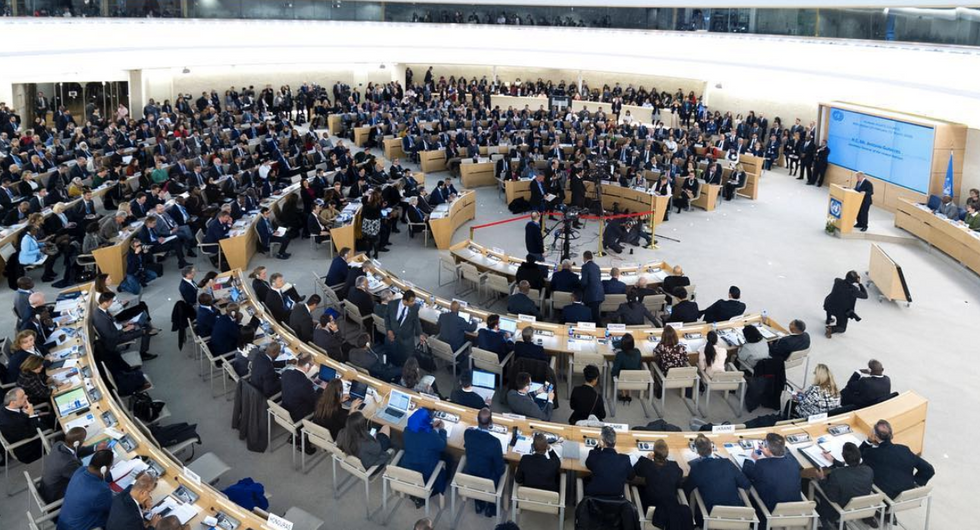Sometimes, world leaders do not represent their people. In this way, people's general opinions can disagree with the administration who holds political power. However, a misinterpretation of global relations assumes that every individual supports the policies of their respective leaders. Through this perspective, one would automatically assume that everyone who lives in America supports the current administration. Obviously, not everyone in America supports President Donald Trump or former President Barack Obama. Just because these individuals formally lead our country, it does not mean that we support all of their actions. So, how come the same conclusion does not apply when individuals consider other nations throughout the world?
This assumption is most dangerous when considering countries with oppressive regimes in power, such as Saudi Arabia or Russia. Just because someone lives in Russia certainly does not mean that they are Vladimir Putin's #1 fans. The only caveat is that individuals who reside in these countries are less likely to voice their political opinions. Perhaps the inability to express disdain for their government results in our misinformation and generalizations about them. Thus, it is wise to stray from generalizations, especially when referring to a specific social, ethnic, or racial group. Every individual is intrinsically different, and although stereotypes may bear some truth, they cannot be applied in every single situation.
Moreover, this reality is important to recognize when describing large portions of the world. For example, assuming that the entire Middle East supports Radical Islamic Terrorism. When it comes to analyzing sources of terrorism, some point to the Middle East; however, instances of radical terrorism occur throughout the world. Assuming that the Middle East or any individual of Arab descendant is more likely to support terrorism suggests a false application of misconceived generalizations and stereotypes. Additionally, a significant counter-argument to this incorrect assumption is the recent terror attack in Christchurch, New Zealand against Muslims. Yet, these instances do not receive as much media attention because it disagrees with the narrative that Arabs, specifically Muslims, are terrorists themselves or support acts of terrorism due to a hatred of "The West".
In another way, there is plenty of hatred of "The West" within Western countries, such as the United States, in the form of domestic terrorism. The horrific bombing in Oklahoma City over twenty years ago was orchestrated by a former U.S. Army veteran. More recently, the events in Charlottesville and Pittsburgh are gruesome moments in America's history which pose threats to democracy within the United States itself. Acts of hatred which attack the American values of liberty and justice for all may even originate within our own country; thus, the blame can not always be placed on other countries throughout the world who the United States has more complicated relationships with. And more importantly, world leaders are not responsible for representing one voice for its people. And commonly, a country's leadership manipulates the people and pushes their personal agenda to retain power.
Recognizing that acts of hatred can originate from within our country does not discount groups which publically voice their intention to destroy America, such as ISIS or Al Qaeda. Clearly, these terrorist organizations pose a threat; however, my point is more that one cannot assume that regions rather than clear organizations are responsible for such sentiments. This distinction offers a more worldly view of global relations and accepting that the mass of individuals who live within a specific country do not all think the same.
In this way, every region in the world is extremely complex, containing a variety of opinions. Thus, one representative for each nation cannot possibly represent that melting pot of perspectives within their own country. So, it is worth noting this when discussing global relations in order to provide a more holistic analysis of global relations and the leaders who do not necessarily always accurately represent their people.

















